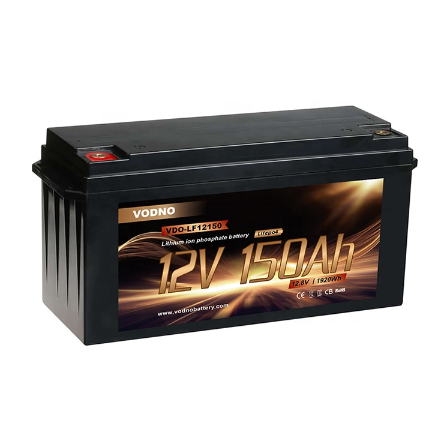© Copyright 1976-2017 Shenzhen Vodno Technology Co., Ltd All rights reserved. Powered by iwonder.cn
High-capacity batteries are in great demand these days for a variety of purposes.
These batteries are used for a variety of purposes, including leisure batteries, electric car batteries, solar batteries, and many more.
Several years back, lead-acid batteries were the first high-capacity battery choice commercially available.
However, the industry has shifted significantly as the desire for lithium-based batteries has shifted due to their wide applications.
In this sense, two battery types stand out: lithium-ion batteries and lithium ferrous phosphate (LiFePO4) batteries. People frequently inquire about the distinctions between the two types from us because they are both lithium-based.
As a result, in this post, we will go through both batteries in-depth and see how they vary from one another.
You will gain more insight into which battery will work best for you by learning about their performance on a variety of metrics.

We shall compare an LFP battery to other lithium-ion batteries focusing on the numerous significant variables.
A battery's energy density is determined by how much power it can produce in relation to its bulk.
Among all battery kinds, lithium-ion batteries have one of the greatest energy densities. These batteries have an energy density ranging from 100 Wh/kg to 265 Wh/kg.
An LFP battery has a somewhat lower energy density than a lithium-ion battery. Their energy density ranges from 90 to 165 Wh/kg.
The battery's rate of depletion of charge while it is not plugged into any device is known as its discharge rate.
Lower discharge rates are beneficial to the battery since they suggest outstanding chemical stability and lengthier energy storage.
The discharge rate of a lithium-ion battery is around 5% each month. This indicates that when a lithium-ion battery is fully charged, unplugged, and kept for one month, it will decrease from 100% to 95%.
The discharge rate of lithium iron phosphate is around 3% per month. This indicates that after one month's storage, the battery will have depleted from 100% to 97%.
Lithium-ion batteries are known for their thermal behaviour since they frequently overheat.
There have been reports of LiMnO2 batteries in laptops bursting. These batteries frequently experience thermal runaway.
An LiFePO4 battery has no danger of igniting or explosion since they are 100% incombustible.
These batteries do not overheat, irrespective of how they are charged. Furthermore, there is no thermal runaway.
Battery longevity is predicted by a battery's cycle life, which gives you a higher return on your investment.
Lithium-ion batteries typically have a cycle life of 300 to 500 cycles. This basically correlates to a time span of approximately three years.
LFP batteries have a significant cycle life of around 3000 cycles. This equates to a time span of more than seven years.
When selecting a battery pack, it is critical to determine if the specific kind will be acceptable for your needs
Because of its increased energy density, lithium-ion is more suited for situations where battery space is limited. Technological devices such as phones and other compact rechargeable products are the most notable of these uses.
With the numerous benefits and superior quality of lifepo4 battery packs, it is widely used in electric cars, solar batteries, and other uses.
You can trust us as a well-known company with a strong dedication to quality when it comes to high-quality lifepo4 battery packs and other kinds of batteries.
So, if you're interested in any of our goods or services, kindly click the link to get in touch with us. We'd love to collaborate with you.